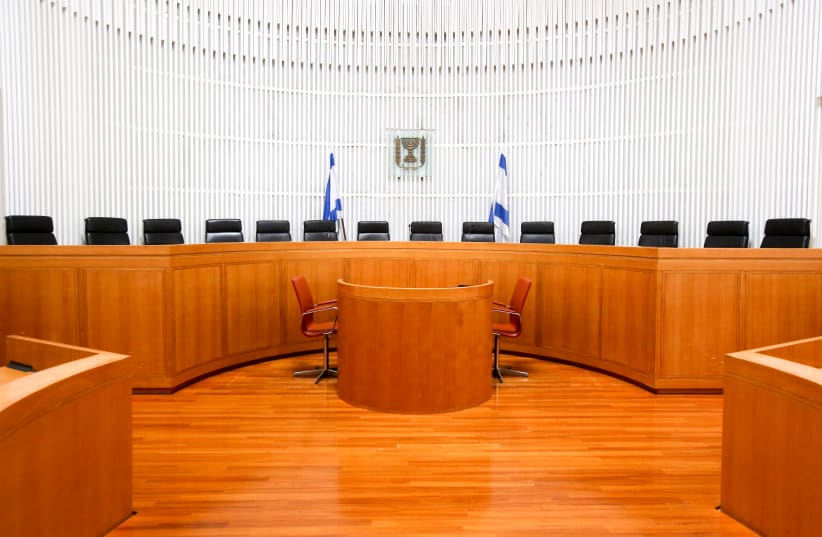The truth is that this list is not even complete, as others – such as former deputy minister and Yisrael Beytenu powerhouse Feina Kirschenbaum, and a variety of mayors and other government officials – are already facing trials.
The above list is just the most recent officials who may end up on trial for corruption.
All of them are, of course, innocent until proven guilty; however, such a lengthy list raises questions over how this can happen and how to prevent it.
Let us not forget that former prime minister Ehud Olmert and several other former top Jerusalem municipal officials went to jail in the public corruption trial to end all trials.
Considering the speed and volume of new public corruption scandals, one might think that Olmert was 20 years ago, enough time for a new generation of politicians to come in and forget about him. But, Olmert was only released from prison in July 2017.
As for the local Jerusalem officials, good governance advocates that there is a chronic lack of checks, balances, boundaries and oversight of local officials.
Even as recent years saw a string of public corruption convictions of Ramat Gan mayor Zvi Bar, Ramat Hasharon mayor Yitzhak Rochberger, Bat Yam mayor Shlomo Lahiani, Nof Hagalil (Upper Nazareth) mayor Shimon Gafsou and several others, activists say that most local corruption is never caught.
On the national level, corruption is more complex as there is greater attention and oversight.
Part of the answer likely lies in the fact that most of the above cases do not fit into the classic bribery and fraud box.
Netanyahu is mainly accused of media bribery, not of receiving cash in envelopes in the blatant way that Olmert did.
Litzman is accused of trying to help an alleged pedophile avoid extradition, not of being flown around the world by tycoons like Kirschenbaum.
We do not yet know the full specifics in Deri’s case, but the charges have appeared to allege a complex tax avoidance scheme using a variety of family members. It is a bit closer to classic public corruption, but still some layers removed.
In short, politicians did actually learn from Olmert. They learned that blatant bribery will be caught and will not be tolerated.
However, many appear to have engaged in corruption nonetheless, only in more sophisticated ways.
Many officials have also used their power in allegedly corrupt ways, which could mix in with the narrative of being valid uses of their powers to defeat some kind of unfairness.
For example, Netanyahu said that his actions with media officials were to try to balance a media war against him that was unfair.
Litzman is saying that all of his actions were taken to help constituents who were being bullied and treated unfairly.
This does not apply to all of them, but shows that politicians are planning their power or financial moves to coincide with a sophisticated narrative which they can present to the public if necessary.
How can we stop this more sophisticated public corruption in the future?
No one has come up with a way to eliminate the scourge of corruption from the planet, but in September 2018, Yuval Feldman of the Israel Democracy Institute and Bar-Ilan University told The Jerusalem Post that “the law doesn’t understand how people make decisions. Typically, with a bribe, someone gets money and gets something in return from a public servant. Very few people would engage in such corrupt behavior.”
However, “many more people would do things for someone – write something nice about them in a newspaper, invite them to a conference or give a gift” – especially if they “know them and feel like the person is a friend.”
“When everything is a criminal law approach,” he said, “it is a very problematic approach to most violations. Regulatory laws prevent gifts to public servants, but that is not enough.”
Regarding a different strategy for penalties, he talked far more about administrative fines and frequency of enforcement than of using jail time and criminal law.
He is convinced that the much broader and corrosive group that law enforcement should go after are those who give money to others in these questionable borderline situations. This is as opposed to targeting the smaller group of people looking for ways to directly get money in their own pockets illegally.
Another answer is the public itself. Even if all of the above politicians are eventually found to be innocent, it has been stunning that none of them have faced any electoral consequences to date.
If the public reelects politicians accused of corruption – or in Deri’s case, those who have already been sent to jail previously – why should politicians avoid it?
New State Comptroller Matanyahu Englman is about to eliminate his office’s anti-corruption division with the support of the ruling political class.
Most voters do not seem to care or may not even have noticed. Until voters make politicians pay for corruption charges, the political class is unlikely to be deterred.
